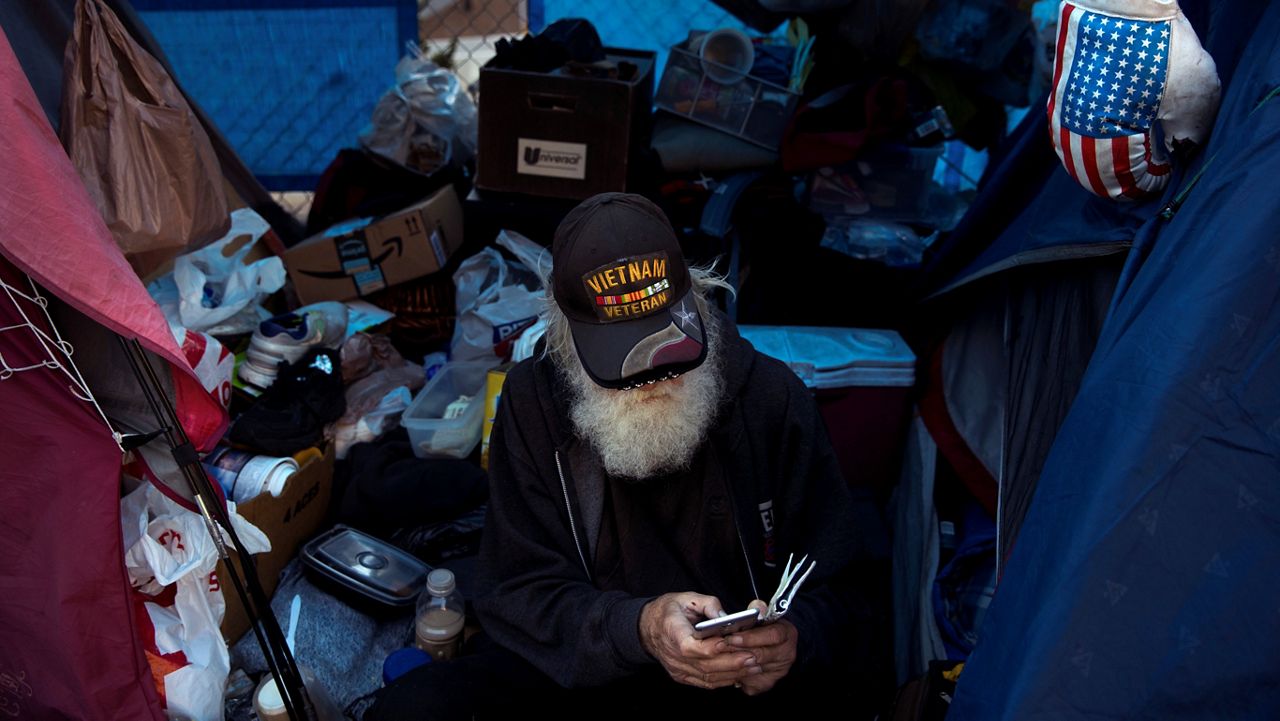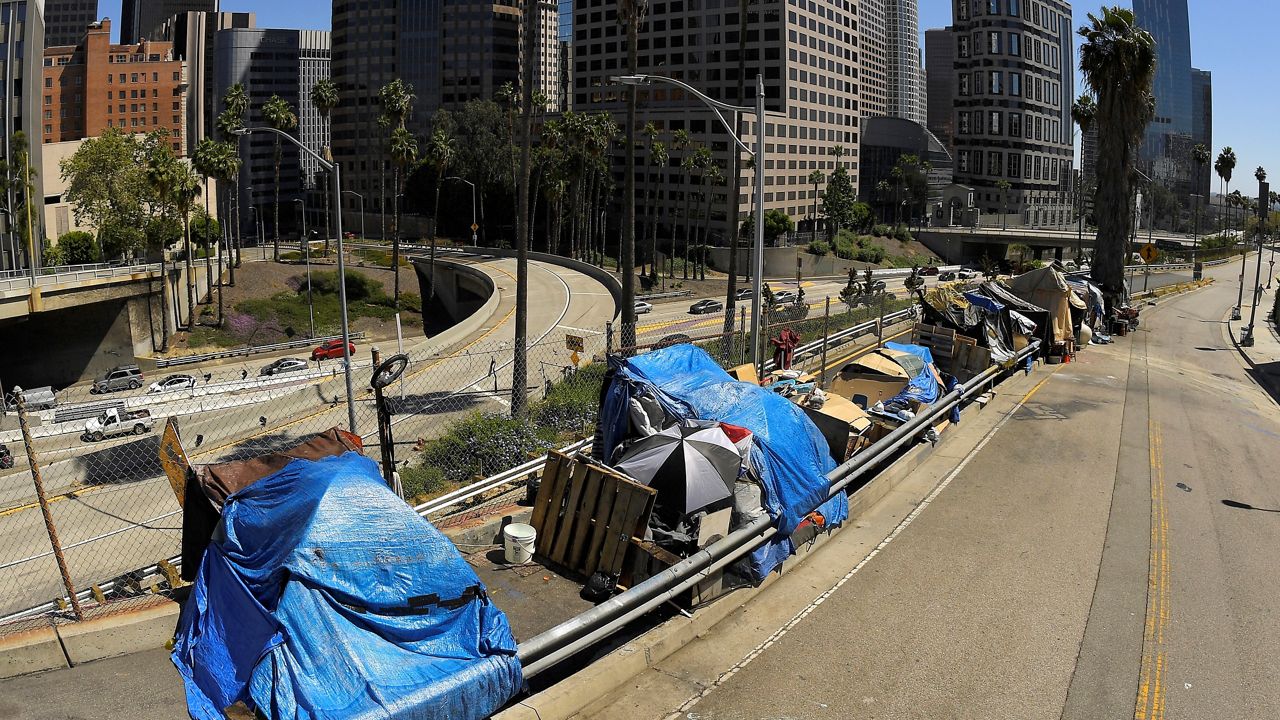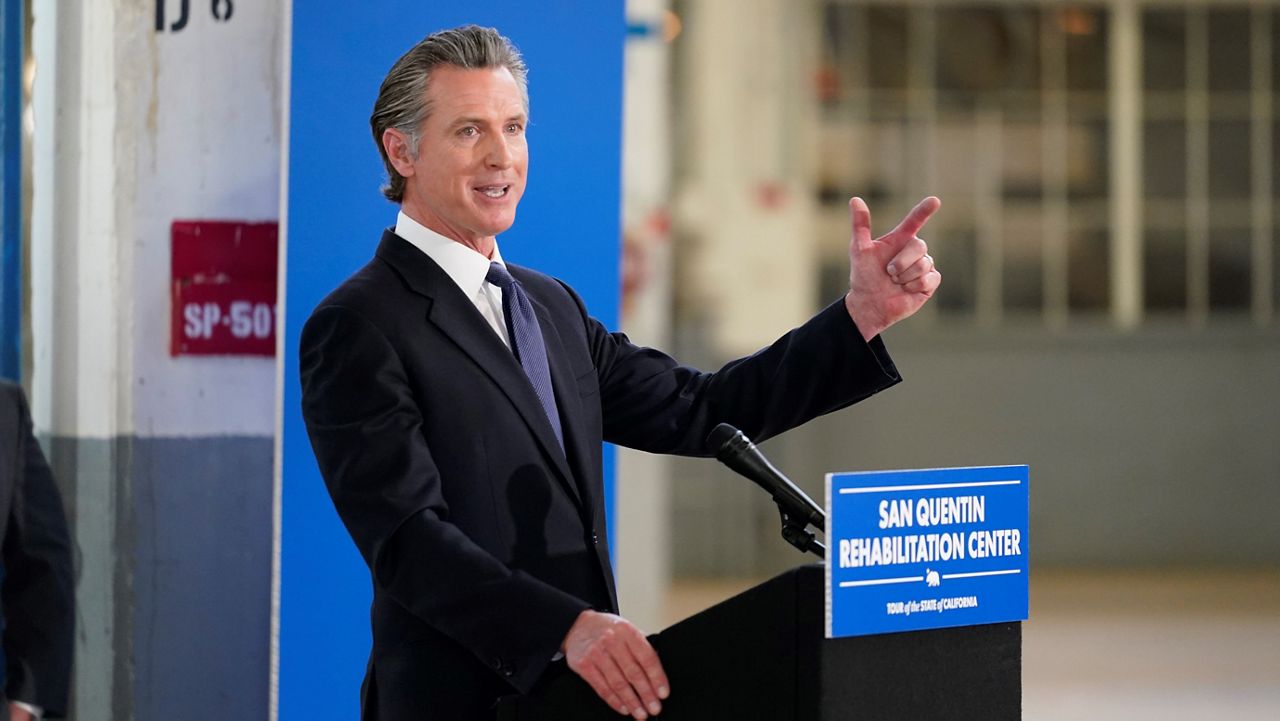It may sound like the perfect idea for a COVID-style vacation: a complete sensory experience feeling the sun on your skin, while smelling essential oils in the air. But this unique experience helps you relax without leaving the city.
Micah Jackson, the CEO of Esqapes Immersive Experience, tells Inside the Issues initially the idea was a side project.
“I was working on another virtual reality project and it had this heavenly garden environment that I created for it and while working on it I would just put the headset on and sit in this virtual garden and I started wondering if this would really help other people because it helped me to relax and calm down,” he said. “I convinced my wife to buy one of these big massage chairs and put it in our living room and then I built the prototype and once I had it working, I was like I think there's something here and so that was really how it all started.”
Esqapes opened in July of last year and started out strong, but since the pandemic has hit, Jackson is facing the possibility of a closure if business doesn’t pick up.
Though the business was mandated to close, Jackson, a Black business owner, said he still had to continue to pay rent and had no income during that time. He began looking for alternative ways of finding income to get the business through.
“Like many business owners, [I was] applying for PPP loans and you know any other kind of grants that I could get,” he said. “And, while I did receive some assistance, I received several thousand dollars but it just wasn't enough to even cover you know 1 months rent.”
According to the National Bureau of Economic Research, 41 percent of black-owned businesses have closed between February and April of this year, compared to 17 percent of white-owned businesses.
“We had just started to, also, pick up business you know in April and March just before we had to close and it's one of those things that for especially a new small business, every month is you’re fighting to stay afloat, basically,” said Jackson. “It's one of those things where having to close for several months not only do you lose revenue but you lose sort of that network effect of people saying, ‘This is really cool, you should go check this out’ and that, I think, hurts more than even just the financial responsibility.”
While Jackson is working on getting funding from venture capitalists, recent data shows less than 1 percent of funding from VCs go to Black founders.
“Unfortunately one of the most challenging things for people of color is to get capital to start a business and that was definitely my case,” he said. “I initially sought loans through traditional banks and even SBA loans long before all this happened with the pandemic and the only things that were available were loans with really, really bad, almost predatory, sort of terms and outside of that there wasn't any other option.”
The biggest problem with finding the capital, Jackson said, is knowing where to start. Many entrepreneurs have connections and it can be easier to get your foot in the door.
“The thing that’s been most challenging regarding venture capital, is that for me and for a lot of people of color we have no precedent, or there’s not very much information in my community about venture capital and how that system works. The first thing is just this hurdle of understanding that this world exists and that it's even accessible to you and then the second part of that is the accessibility,” he said. “I think it's one of those things that most venture capitalists are not actively looking at businesses who are run or are owned or started by people of color and part of that is because it's based on a network. It’s based on whether you have to know a certain person in this network or you have to know a particular venture capitalist in order to even get a meeting and that has really been, I'd say, the hardest part of it.”
In the meantime, Jackson is trying to get the word out and has even started a GoFundMe to keep operations running.
“Since May, I think there's been a lot of awareness now and I think there have been a lot of VCs who have made the active look at businesses who are run and started by people of color and I think that there's more awareness now. Unfortunately, I think there's still a long way to go. It's still one of the biggest gaps that people of color in this country have is access to wealth, access to capital, and even just the ability to even go out and meet these people that can provide capital to a business.”
Let Inside the Issues know your thoughts and watch Monday through Friday at 8 and 11 p.m. on Spectrum News 1.





